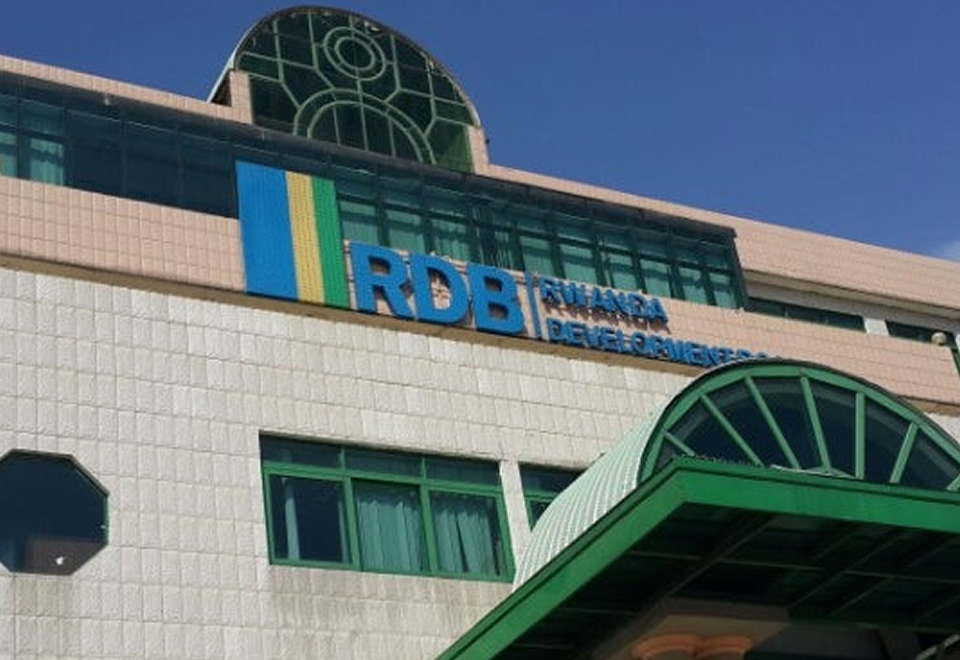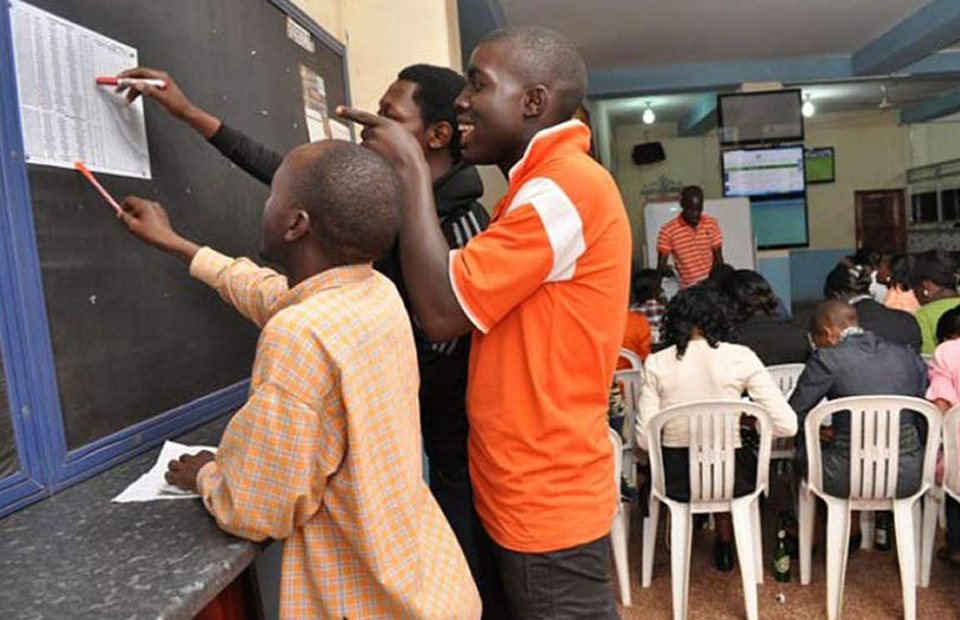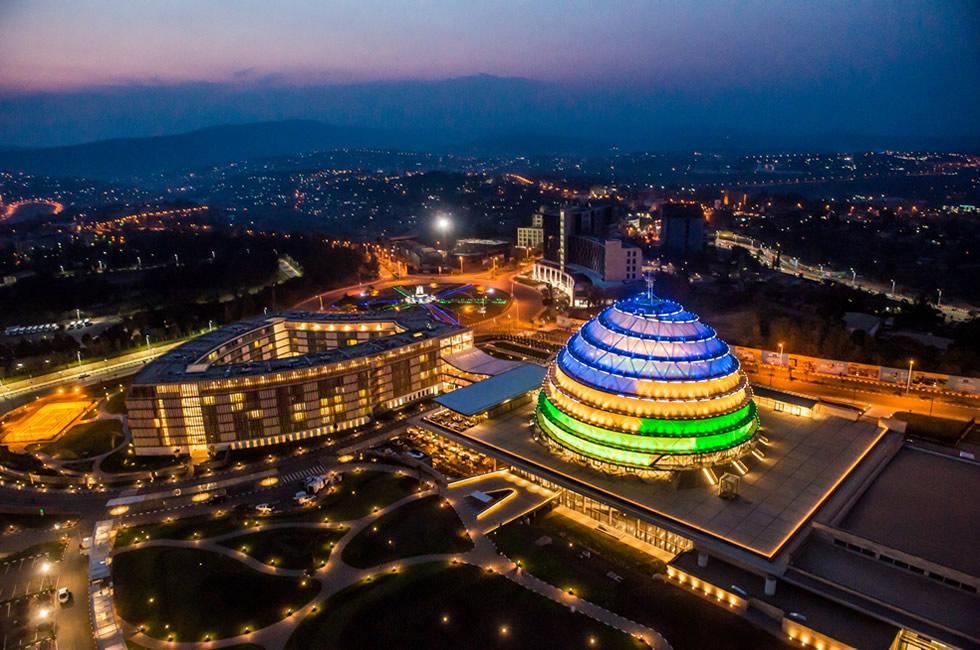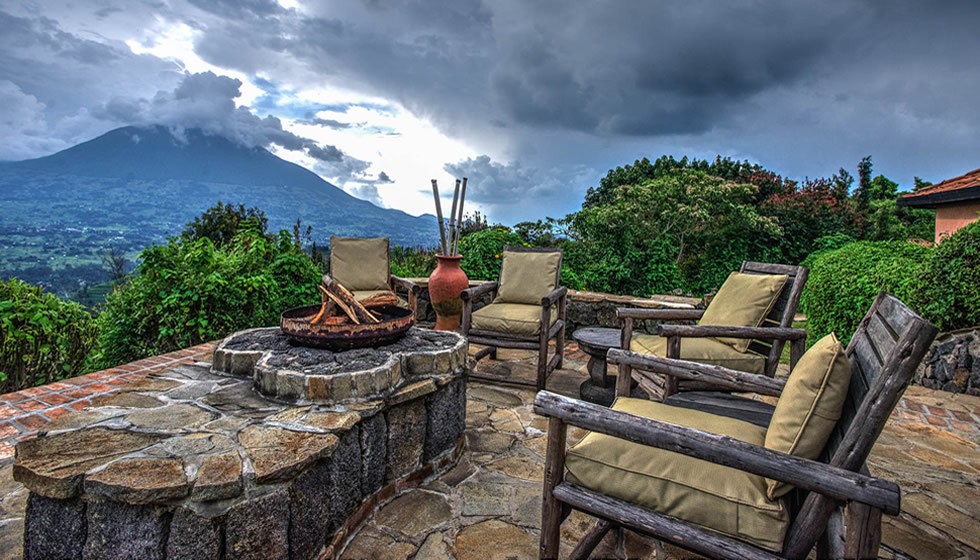
Contribution of RDB to Growth of Rwanda Tourism
Rwanda Development Board (RDB) is a body responsible for setting and regulating all tourism activities in Rwanda. The RDB runs tourism activities on behalf of the Government of Rwanda and its contribution to the development of tourism can be discussed below:
Rwanda tourism board (RDB) has facilitated tourism activities like Gorilla trekking, Chimpanzee trekking, canopy walk, Golden monkey trekking, Dian Fossey tomb trips, Mountain climbing and colobus monkeys among others. The body sets marketing plans to ensure that the world is made aware of the available potentials. Today, if you compare Gorilla trekking in Uganda, Rwanda and democratic Republic of Congo (DRC), Rwanda takes more visitors. This indicated that Rwanda development board is playing a big role to market Rwanda’s Tourist attraction hence taking a biggest market share.
RDB sets rules and regulations governing tourist activities in Rwanda. This is done to protect the wild life and their habitat ….this is done for continuity hence catering for the future generation.
RDB has reduced cases of poaching in Rwanda which was rampant during the era of Dian Fossey. The board has managed to achieve this by employing armed rangers to patrol all parks 24/ 7.
RDB drafts tourism budget and send it to the ministry of finance for approval. In return the tourism industry gets money which is used to promote Tourism.
Rwanda Development board ensures that all wild animals and birds are in good health and care. Wildlife Doctors are put in all national parks to treat wild animals and gives healthy advises. Primates like Gorillas and chimpanzees get full time health care.
Rwanda Development Board selects capable people to run tourism activities. Such staff includes rangers, Doctors or health workers and so on.
Rwanda Development Board (RDB) is the eye and ear of the government in tourism sector. The RDB work on behalf of the government and in case of any problem like increasing poaching, outbreak of diseases, increasing deforestation and so on, RDB reports to the government to find solution.
RDB trains security personal to protect wild animals. They include rangers, tourism police and army among others.
Rwanda Development Board gazette places for wildlife reserves and resettle people who try to encroach the wildlife reserves. Wildlife reserves include National parks, Game reserves and so on.
Rwanda Development board (RDB) promotes tourism in Rwanda through advertisements, organizing tourism events like kwita Izina (Gorilla Naming events), attending world exhibition events and so on.
Read More
Sports betting in Kigali: A New Era of Addictive Gambling
Sports betting shops can now be found in every nook and cranny of Kigali, Rwanda’s capital. In Remera, for instance, the building that used to house a leading bank has been converted into a sports betting house.
The general trend this alludes to is that any strategic building that has been vacated, or any new development in any strategic location, is now being snapped up by betting shops.
I recently took a friend of mine to watch an English Premier League match near Amahoro Stadium and what surprised him was the significant number of laptops that the gambling shop had invested in. And all the laptops were occupied – with a long list of others waiting to use them for betting.
I asked the owner of the betting shop if a product like betting needs such kind of ostentatious display – since people are going to gamble anyway – and he said they are just managing customer experience in this digital age.
According to a blog article titled “Going All In: The Criticality of Customer Experience in Betting and Gambling” by Karen Smith, “The popularity and proliferation of opportunities to ‘bet-in-play’ has compounded the demand for streamlined and robust customer experience.
“Betting in play is the ability for a user to place a bet, typically on dynamic odds, during a match. As a rule, these customers demand quick navigation, dynamic and engaging content, and fast performance times to successfully process their journey,” says Smith.
In some of the betting shops in Kigali, you will find giant screens where people can watch live matches.
But the walls not only just found TV screens to broadcast matches. Virtual games like horse racing, dogs racing and spinning wheel, among other imaginable virtual betting games, can also be found in these shops. And people are now not just betting on live football games, but also virtual football ones where each game can last only one minute or less.
There are some shops where people can now play casino games, both brick-and-mortar, and the online ones.
And even when it’s past midnight when other people are sleeping, you are still going to find the bettors hooked deeply on the computers, either losing or getting money in the process.
A new era of addictive gambling
Gambling has now become a reality in Rwanda.
However, on the flipside, people gambling themselves to sheer poverty or even death are not fairytales or things we only watch in movies. And the inventor of sports betting unwittingly bred a new era of gambling.
Deo Habimana is a 28-year-old motorcycle-taxi driver in Giporoso. He says he began betting some few years ago and, as time went by, his “hobby” started consuming a more significant chunk of the money he earns in a day.
Habimana readily admits that the money he gets at the end of the day is minimal compared to what he injects in betting – yet he cannot quit.
Habimana also admits he’s aware that he’s spending his hard-earned money on an addictive habit, but insists betting also helps him to relax while also waiting for that time he will hit it big time.
“I’m always inspired to bet after I’ve heard about the good fortunes of those who have hit jackpots. They are just fellow bettors like me, and I hope that my day will also eventually come,” he says.
He adds that when he doesn’t have money to bet, he resorts to the desperate solution of pawning or even selling some of his household goods to sustain the habit.
“Often, I bet even the last coin I have in my pockets, and this can be quite devastating when you don’t have food in the house. However, I always pick up the courage to again visit the betting shops since I believe that I stand a chance to win big,” he admits.
Thriving business
Claire Ijabiro works at Lucky Sports Bet in Remera, a Kigali suburb. She confirms sports betting has now become a big business and that’s why many betting shops are opening up everywhere in Kigali. But she points out that they don’t allow those below 18 years to participate.
She explains that her company’s starting amount for betting usually is Rwf300 and may sometimes go up to millions. And the amount won depends on the odds or standards a particular team is given. Gamblers typically bet on international teams.
“Sports betting is now just like any other business and, in recent years, it has become quite lucrative not only in Rwanda but in the entire region. Lucky bettors may win millions of Rwandan Francs, and it’s handed to them without demur,” she says.
Many gamblers say they have made a substantial amount of money from the practice.
Apart from placing one’s cash on a team which is seen as a favourite to win a game, as the odds attest, Ijabiro admits winning in a sports betting game is all a matter of luck.
She adds that on a typical day, a betting company may make a million francs and even over, mainly when the playing teams are big guns.
“The amount of money we earn a day is determined by the teams out on the fixtures. When it’s the English Premier League, for instance, very many people bet and we also get to earn a lot. We can earn Rwf800,000 or more,” she reveals.
This shows how lucrative this business is, yet not all people view it with a similar lens.
Jean Pierre Niyonsenga, who works for a betting company he doesn’t want to be mentioned here, says betting is a gambling business capitalizing on addiction and curiosity.
“People spend a lot of their cash on games they’re not even certain of winning. You find that one bets in many games but gets nothing out of them or wins in only a few of them, meaning the rest of their money went to waste, which isn’t wise,” Niyonsenga says.
John Baptiste Kayiranga, a college student, says sports betting isn’t that harmful till you’re addicted to it.
“I do bet sometimes, but it’s something I do only for the fun of it. I am not against the game, especially if the person doesn’t do it excessively,” he says.
But Nancy Iradukunda, a mother of three, says she is against gambling in any form. She wonders why a rational human being would risk their cash on something they’re not sure of gaining from or even having any influence over.
Read More
How Kigali Metamorphosed into one of Africa’s Most Livable cities
Paul Kamanzi, 41, has lived in Kigali since early 1995. Having been born in Uganda where his parents fled to escape political persecution during pre-liberation Rwanda, he was among the early returnees who took advantage of the country’s liberation in July 1994 from the genocidal regime to return and their home country to rebuild their lives.
“I have seen incredible infrastructural development ever since I came back. The face of Kigali has completely changed, and I’m happy to be a part of a generation that saw the beginning of this incredible pace of development,” he says.
Kamanzi goes on: “When I first came to Kigali, it was incomprehensible a dream to think about real estate in Kigali. Now several estates today are established in Gaculiro, Kicukiro and private projects in Kagarama, Kibagabaga and Kagugu, among others. And the momentum is continuing.”
Kigali today
Today, Kigali is a different place compared to 20 years ago. The street lights, paved roads, sidewalks and fancy coffee shops and the continually growing skyline are a main feature of the city. Kamanzi alludes to several iconic buildings in Kigali that have completely changed the city’s architecture and skyline.
Part of Kigali’s architectural development can be attributed to the growth of the private sector over the past decade, creating demand for more office space, particularly in the central business district.
The demand has peaked, thus resulting in shortages. For instance, the new Makuza Plaza is now expected to address part of the challenge the city has been facing, which saw office space rent cost an average of $18 per square metre per month.
To understand the present dynamics of Rwanda’s real estate, one should understand factors affecting supply and demand in the sector. Many developers, according to City of Kigali, are building structures in relation to market demand and affordability.
The increased supply of office space is inevitably going to lead to lower monthly rental charges and hopefully, people will stop turning residential premises into offices. Some of the buildings that have recently been built to mitigate shortage of office rent include CHIC, Kigali City Tower, Kigali Heights in Kacyiru, Soras Towers and M.Peace Plaza.
Kigali’s architectural development can also be seen in the context of the government’s ambitious economic development plans. For instance, the need to make Kigali a regional meeting, incentives, conferences and exhibitions (MICE) tourism hub has seen the construction of iconic conference facilities like the Kigali Convention Centre, completed in 2016.
Before that, the area around where the Convention Centre boasted average buildings, including the old Post Office and the once famous KBC, which had to be flattened to pave way for ultra-modern structures.
Talking of MICE, the hospitality industry has indeed helped change Kigali’s image, with hotels like Lemigo Hotel and Radisson Blu making Kigali a modern metropolitan that is now being described as Africa’s Singapore due to its rapid development, particularly in regard to its changing architecture.
The incredible story behind the changing face of Kigali would not be complete without paying homage to how Rwandans themselves who have worked hard to transform their city.
“We chose to think big, that is why we liberated the country,” President Kagame said on April 7, 2014, during the commemoration of the 20th anniversary of the Genocide against the Tutsi.
Tabaro says that Kigali itself generally is like the sun that disappeared into the darkness of the night, only to rise up the following morning with more splendour.
Iconic Kwa Rubangura and the Nyarutarama jungle
By 1995, the tallest building in the city was commonly known as Kwa Rubangura, in reference to the owner, Vedaste Rubangura.
Rubangura was one of the wealthiest Rwandans at the time. His building had five floors but only three were occupied. It had just two toilets that served almost the entire facility.
“Rubangura’s building was iconic by then. It was the major reference point of everything in the city but, although it still exists and has been renovated, it is now just a dwarf among giants,” Kamanzi says.
And the area in Nyarutarama, now home to the famous MTN Centre, was one vast jungle roamed by wild animals. There were no ultra-modern upmarkets in Nyarutarama or residential premises where Kigali’s who-is-who now reside.
Away from Nyarutarama, I meet with Peterson Tabaro, the head of Cyimana Sector in Kacyiru. From a shop where he’s perched on a chair, looking through the window towards the now picturesque Gacuriro neighbourhood, he tells me that even immediately after the genocide Gacuriro was just a series of farms, and later people started to build informal houses that mostly catered to the poor.
“Now even if you see those red-roofed houses that give way to the white houses of Vision City, which area itself has gone through a period of rapid development, seeing that people initially went there to cultivate the land. But over the last few years, we’ve seen how fast new, imposing buildings have sprung up. Now it’s an estate inhabited by the middle class,” he says.
Celestine Muranira has lived in Majerwa since 1996. From when he first came to this area, it was all about informal houses but over the years, such imposing buildings like the Ministry of Health headquarters together with a host of other modern buildings have completely changed the skyline of the place.
However, when you really need to see how the architectural complexion of Kigali has changed, you should visit Kacyiru. Right from where Kigali Heights is located, itself a new building that was only commissioned last year, there are new architectural wonders that are replacing the old buildings and the area itself is becoming a city within a city.
Elsewhere
And it is not only in Kigali City where we are seeing changing architecture. In 2010, the government announced that it had set aside Rwf1.5 billion for districts to construct modern houses for the needy to eliminate grass-thatched houses in the country, locally known as Nyakatsi. Travelling to rural areas, you are not likely to see any grass-thatched houses that were sanctuary for the rural poor 20 years ago.
Read MoreNyamirambo vs Nyarutarama: the Muzungu Dilemma
Muzungus in Kigali can be found just about everywhere. Once a rare sight, relegated to only a few predictable neighborhoods, they have managed to infiltrate their way into even the most far flung corners of the city. From Kicukiro to Kagugu, Gitega to Kimironko, they are everywhere.
Of course, some places are more densely populated than others (if you have ever been to Sole e Luna on quiz night or A.B.C. on a Saturday morning, you know what I’m talking about). A solid explanation for why muzungus choose to congregate in one place over another may never really be known, but here we try to get to the bottom of mysteries such as this.
It should come as no surprise that a large number of foreigners settle in the luxurious area of Nyarutarama. You need not be a Kigali regular to notice the lavishness and wealth present in this neighborhood. Home to a private tennis club, the country’s only golf course, and numerous opulent hotels and guesthouses, this part of town is the definition of new-money bourgeois.
Most appealing to the muzungu who likes to wear Sperry boat shoes, pop their collar, and brush elbows with other members of Kigali’s elite socio-economic status, the Nyaturama muzungu can easily pretend that they are back at home in the comfortable suburbs of New Jersey or Connecticut, or in a modern London or Tokyo flat. Only now, they have far more hired help and a vastly bigger living space.
While it may have been difficult to trade in your cramped New York City apartment for a Chinese-engineered mansion surrounded by fruit trees and exotic flowers, the team of house staff at your every disposal and large shiny Land Rover should help ease the adjustment.
Not that there is anything at all wrong with comfort — if you can afford it, why not? Let’s not pretend that we wouldn’t all like to live in a large, beautiful, comfortable house.
When all of your daily chores are taken care of for you, you can focus on bigger worries, like solving developing world’s problems, or selling European-designed telecommunications.
Most likely due to income and status, Nyarutarama also tends to attract older muzungus and those more seasoned ex-pats. Most muzungu families choose to nest in Nyarutarama or nearby and newly built-up Gaculiro and Kagugu.
When you are an expat with a family in Africa, you want to provide only the best: the most modern and sterile upbringing possible. Nyarutarama and its affluent residents epitomize Rwanda’s vision of a prosperous, contemporary, and distinctly affluent nation, one California-style mansion at a time.
On the other side of the coin, and far on the other side of town, exists a completely different universe: Nyamirambo. Due to its low rent prices, bustling streets, and unreliable running water and electricity, Nyamirambo attracts a much different crowd.
Generally, a younger, unrulier, and lower-income bunch, the foreigners who choose to live in Nyamirambo came to Rwanda looking for a truly “African” experience (or perhaps just for easier access to cheap beer). Rejecting the “new” Rwanda embodied by Nyaturama as a white-washed and characterless suburb, these muzungus pride themselves on their commitment to proletariat authenticity.
Popular among the volunteer crowd, Nyamirambo muzungus prefer this grittier, busier version of Rwanda. Those that choose to settle in this part of Kigali have no problem washing their own laundry by hand, shopping at Kimironko market, and taking bucket showers.
Because they have adjusted to a lifestyle so different from that they live back home, this group of ex-pats is more likely to find release in binge drinking and late-night shenanigans, activities that Nyamirambo caters to quite nicely.
What gives these two essentially polar-opposite places similar appeal? The short answer is that not all muzungus are the same. The longer answer is that these two enclaves of Kigali each offer very different versions of Rwanda. While the details in their reasons may differ, these two groups of muzungus can find common ground in their shared love of Rwanda.
Read More
Rwanda: An Amazing Honey Moon Destination
It’s very important to plan your honeymoon on an African continent particularly Rwanda the land of a ‘’Thousand Hills’’. Rwanda is a magnificent beautiful country that offers a perfect honey moon destination in Africa. The country has favorable year round weather which means it can be visited at any month of the year depending on the traveler’s interest, its adventurous filled with scenic wonders, indeed it’s the right country to visit as you begin your marriage safari journey, it’s a perfect location to relax and enjoy Africa at its best.
Rwanda is a country of Choice for those that are looking for a truly unique off the beaten path experience in the heart of Africa, one of Africa’s most scenic. Spending the honey moon deep in the volcanoes national park forest with the most interesting to see endangered mountain gorilla is a memorable moment in life very difficult to forget, these apes are magnificent to watch in their natural habitat, the one hour you are allowed to stay with these animals is a life time experience one should not love to miss especially when you begin your marriage. Nothing is more adventurous than hiking and tracking chimpanzee and other primates in African Amazon the larges African montane forest (Nyungwe forest national park). Sharing the love of gorillas with that of chimps is regarded as a magical experience one should not love to miss on such a life time experience.
Rwanda offers you what is beyond your imagination, it’s one of the smallest countries in the world with no seaport, Lake Kivu offers you Africa inland cost with one of the best lodges beyond your imagination and adventure that gives you long lasting memories, you will enjoy beach activities like swimming, touring to nearby islands among more.
Kigali which is the largest and the capital city of Rwanda is one of the visited incredible Rwanda cleanest safest towns of Africa. Rwanda is known as one of the stable countries and your time here will be without worry of potential safety security problems, so you will be safe during your stay here. Everything in Rwanda superb ranging from the rare mountain gorillas, primates, wildlife, birds to luxury lodging all will meet your needs and beyond.
Depending on your plan, you can also extend your safari to Uganda where you can continue with wildlife viewing, chimpanzee and gorilla tracking, hiking and also white water rafting on the River Nile. Your safari can begin in Kigali and end in Entebbe -Uganda the pearl of Africa without long drive times and enjoy a True Africa beyond your imagination. Book with us we can design your honey moon safari the way you desire it to be, contact us for more information.
Read More